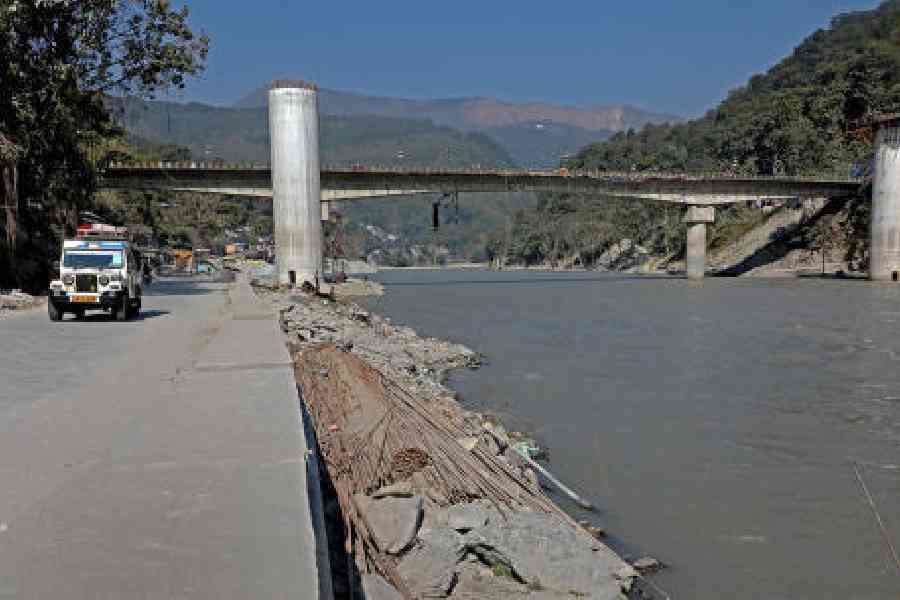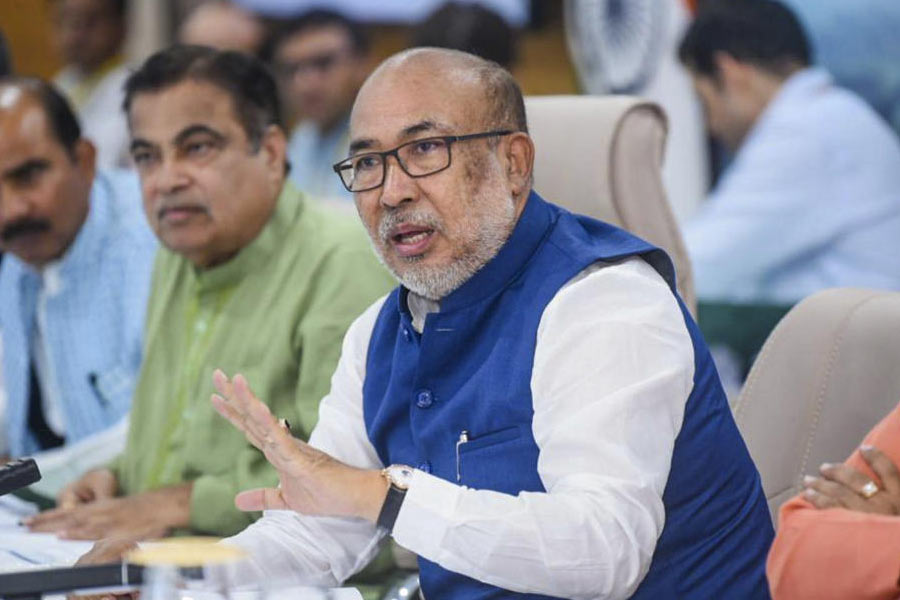The Bengal irrigation department and the Sikkim government have swung into alert mode at the onset of the southwest monsoon in the sub-Himalayan region and particularly after last year’s flash flood on the Teesta river.
On one hand, they have initiated round-the-clock monitoring of rainfall and surge in water levels to pass alerts in advance.
On the other hand, they have taken initiatives to mitigate the loss of lives and property in case there is a flash flood due to incessant downpours. Over the past few days, it has rained heavily in a number of areas of Sikkim and sub-Himalayan Bengal.
On June 1, the irrigation department opened a Supervisory Control & Data Acquisition (SCADA) room in Jalpaiguri. It will work round the clock throughout the monsoon months to gather data on rainfall and rise in water levels of the Teesta and other rivers through automated rain gauge stations and satellite, said Krishnendu Bhowmik, the chief engineer (northeast) of the department.
According to him, in sub-Himalayan Bengal and Sikkim, data on rainfall and water levels of rivers are collected from 30 rain gauges of the regional Met office of Gangtok, 28 rain gauges of the central water commission and 12 rain gauges of the Bengal irrigation department which have been installed in different locations of the region.
The official mentioned that due to the flash flood which occurred in the Teesta in October last year because of the outburst of South Lhonak Lake, there had been huge deposition of silt and debris downstream.
“As a result, the river bed has risen by one-and-half metres. If it rains heavily along the Teesta catchment areas of the hills and plains, there is a risk of flash flood. That is why we are putting all efforts to gather information in advance so that people living closer to the banks and in low lying areas, can be shifted in advance,” said Bhowmik.
This year, the department has also decided to issue primary (yellow) and secondary (red) alerts along both banks of the Teesta before the water level touches the necessary mark.
“As the river bed has increased, it is evident that the river will swell in a short time during the monsoons. Thus, the alerts would be issued in advance,” Bhowmik added.
Ahead of the monsoons, the department has carried out maintenance and repair works in the banks to prevent breach of embankments.
“However, for the long-term solution, we have to wait for completion of the survey that is being conducted by the River Research Institute (headquartered in Haringhata of Nadia). Only then, plans can be drawn for flood control,” said the official.
Meanwhile, in Sikkim, senior officials of Namchi and Pakyong districts, which are in the southern parts of the mountain state, have visited a number of locations which are on the banks of the Teesta to check out the situation.
“Last week, joint inspections were conducted in Melli, Rangpo Mamring, Adarsh Gaon, Balutar and some other areas to assess the situation. Some vulnerable spots have been identified and instructions were given to carry out immediate restoration works,” said a source.
The state water resources department has been directed to take preventive measures erecting Gabion baskets along the river bank to prevent flooding.
“To ensure that people don’t venture into vulnerable areas, the spots would be barricaded with red ribbons by local authorities. Further, official instructions have been passed to restrict access of people to areas on the Teesta river bank which can cave in because of rise in water levels,” the source added.
As a part of preventive measures, the forest department of Sikkim has mandated closure of quarries after 5pm to ensure the safety of workers.
“The Met office, state department and central agencies are regularly exchanging information to act well in advance,” said a source










